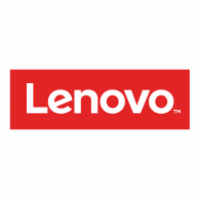
Lenovo
View Brand PublisherHow Lenovo is helping organisations prioritise cybersecurity to support the expanded remote workforce
With cybersecurity being a concern even for well-monitored office environments, the risk has only increased with remote work settings during the pandemic.
With most companies switching to remote or hybrid working settings across industries, professionals are now preferring the flexibility of working from home.
According to a new study by Lenovo titled Future of Work and Digital Transformation, 88 percent of employees from large companies want to work from home (WFH) or work from anywhere (WFA) for at least a part of a working week. Businesses also seem to be on the same page, as 83 percent of IT decision-makers (ITDMs) said they expect future work settings to be remote for at least half a month/week.
However, this paradigm shift comes with its own set of challenges. And the one on top of businesses' list is cybersecurity. Cybersecurity is a concern even for well-monitored office environments and the risk has only increased with remote work settings. Because when the COVID-19 pandemic struck, so did the cybercrooks.

Shifting priority towards cybersecurity
Pivoting to an online business model has its fair share of challenges, but the same Lenovo study shows that data security and privacy ranks as the #1 priority for ITDMs. Even before the pandemic hit, cybersecurity was a concern for businesses, but the current crisis has renewed the emphasis. The shift in priorities comes in the wake of the rising use of remotely connected cloud and collaboration tools. Company data has become riskier as it is accessed from home, where IT teams have limited control of their tools.
Many organisations, while determining security policies, focus on antivirus technologies. But today, less than 40 percent of attacks involve malware. Businesses also try their best to guard network perimeter, but today's hackers are finding new ways to penetrate networks and execute codes at the system's endpoints.
It's not enough to only look at the perimeter, because network authentication and infrastructure security would be in vain if endpoint devices are not secure.
From device theft to unauthorised access to device damage and ransomware, the loss of critical data and information through endpoint devices can cost an organisation a fortune.
Businesses need to invest in end-point security
Businesses can't approach security as just another IT issue anymore. It's high time they think about how to secure endpoints or entry points of end-user devices such as desktops, laptops, and mobile devices from being exposed to malicious online activity.
Amidst these growing concerns, it's good to prepare continuity plans such as cloud-based data backup, physical data backup and data security training. That being said, today's IT departments also have to deal with rising resource costs of data security and compliance.
What businesses need are reliable technology partners to fully manage their hardware, software, and services to maximise value and boost security.
Think security, ThinkShield
Lenovo's philosophy about security is all-encompassing with its best-in-class hardware security, securely developed software, complete component verification, adoption and extension of security technology, and a secure supply chain.
Lenovo End Computing Devices imbibe their 360-degree security policy to protect a business' networks, devices, and data from cyber threats.
For this, the company has partnered with the industry’s most trusted security providers to create ThinkShield, a Comprehensive and customizable end-to-end protection security platform. The platform has cutting-edge products, software and services that protect your business across devices, data and identity, and online services. This includes Absolute, which is embedded in the firmware of Lenovo devices. It offers data about the device fleets, stays ahead of risks and vulnerabilities, automates hardware and software inventories and also discovers savings within your budget.
Another solution is SentinelOne, which offers behavioural AI that fully replaces antivirus and delivers real-time prevention, detection, response, and hunting against known and never-before-seen malware strains.
For device protection, their solutions include Lenovo Patch for SCCM, Intel Boot Guard, Lenovo Self-Healing BIOS, Lenovo HTTPS Boot, among others. For data protection, they have Winmagic, Intel Remote Secure Erase, Lenovo Secure Wipe, System Management Password, and more. For identity protection, they offer Intel Authenticate Multifactor, Glance: Gaze Detection, FIDO, Match on Chip Fingerprint, etc. To enable online protection, they have BUFFERZONE Sandboxing, Lenovo Wi-Fi Security, Lenovo Security Console, IR Camera, and more.
Moreover, every new Lenovo product, from ThinkPad, ThinkCentre, Workstation, ThinkSmart to Data Centres and ThinkIoT, is secure by design with essential ThinkShield protections built-in. In other words, Lenovo is a trusted partner to protect business from today’s sophisticated cybercriminals, all without slowing down its people.
In today's work environment, it's vital that businesses have a contingency plan in place for security. Securing devices in remote work settings will not be easy, but it will be the best investment you can make for your business and will pave the way for future success.
As a small and medium business, with smarter technology and time on your side, you can focus on being productive. Check out Lenovo's ThinkPad and ThinkBook range of devices that will give your business a competitive edge in the new normal.







